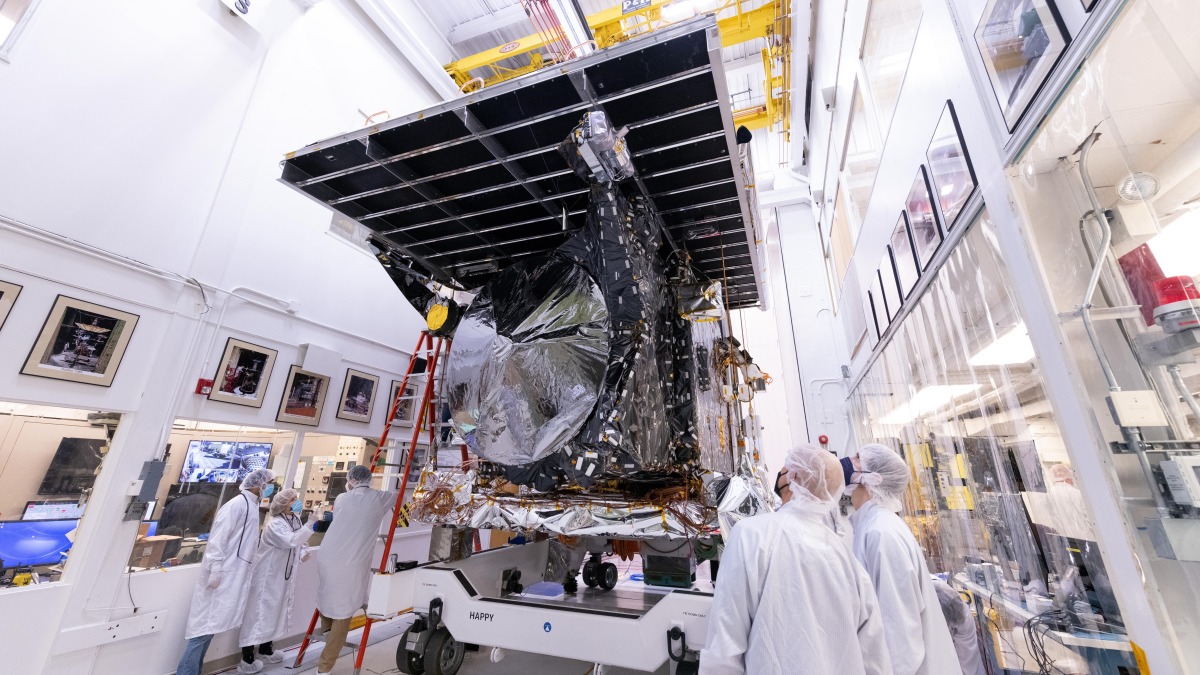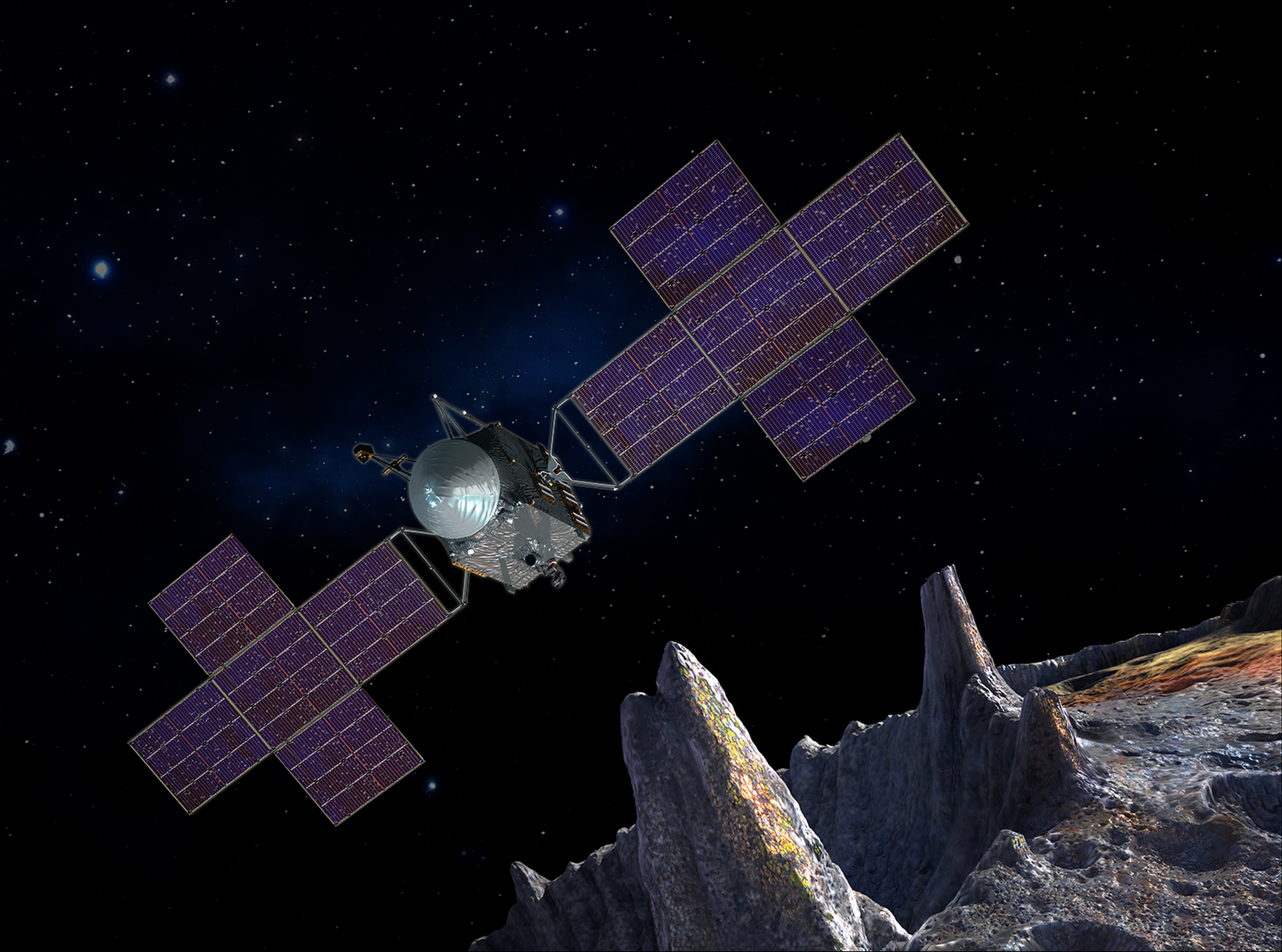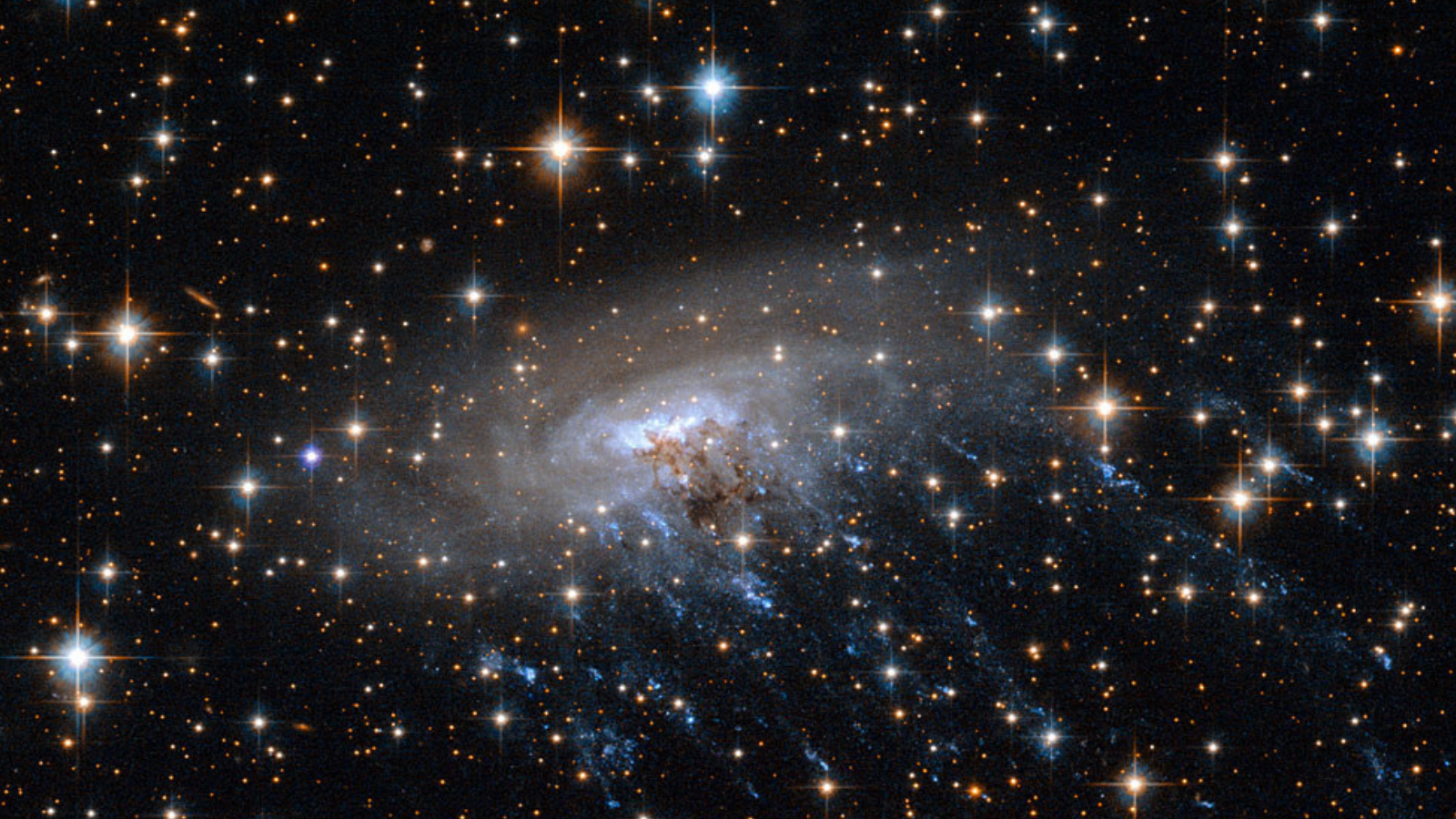NASA's metal asteroid mission's launch delayed 7 weeks by software glitch
The launch will push back to late September, at the earliest.

Breaking space news, the latest updates on rocket launches, skywatching events and more!
You are now subscribed
Your newsletter sign-up was successful
Want to add more newsletters?

Delivered daily
Daily Newsletter
Breaking space news, the latest updates on rocket launches, skywatching events and more!

Once a month
Watch This Space
Sign up to our monthly entertainment newsletter to keep up with all our coverage of the latest sci-fi and space movies, tv shows, games and books.

Once a week
Night Sky This Week
Discover this week's must-see night sky events, moon phases, and stunning astrophotos. Sign up for our skywatching newsletter and explore the universe with us!

Twice a month
Strange New Words
Space.com's Sci-Fi Reader's Club. Read a sci-fi short story every month and join a virtual community of fellow science fiction fans!
NASA's Psyche asteroid probe will wait several more weeks for launch.
The agency announced on Tuesday (May 24) that a software problem with the Psyche spacecraft would delay the launch to at least Sept. 20, roughly seven weeks after the expected Aug. 1 launch. The issue was first reported by Spaceflight Now.
"An issue is preventing confirmation that the software controlling the spacecraft is functioning as planned," the agency spokesperson told Space.com. While not elaborating on what the specific issue is, or its correction, the spokesperson added that the team is "working to identify and correct the issue."
The close of the launch opportunity also isn't ready for public release, according to a May 23 tweet from Lindy Elkins-Tanton, a planetary scientist and principal investigator for the mission at Arizona State University. "Not yet public, we're working on it," Elkins-Tanton said in response to a question about the launch window, although she noted that the delay won't affect the spacecraft's arrival date.
Related: NASA's mission to metal asteroid Psyche in pictures
After its launch, Psyche is scheduled to swing past Mars nine months later to pick up speed to arrive at its target asteroid, also called Psyche, in 2026. This will be NASA's first mission to a metallic asteroid.
Psyche recently passed a gauntlet of "shake-and-bake" procedures at NASA's Jet Propulsion Laboratory (JPL) in Pasadena, receiving a clean bill of health following exposures to vacuum, electrical and magnetic conditions, and radiation.
Breaking space news, the latest updates on rocket launches, skywatching events and more!
"The tests show that, yes, the spacecraft is flightworthy," Randy Lindemann, the JPL engineer who oversaw Psyche’s dynamics testing, said in an agency statement in April.
NASA selected Psyche in January 2017 along with a mission called Lucy that launched in October 2021 and will visit the Trojan asteroids of Jupiter. Both missions are Discovery-class planetary science missions.
Psyche was initially supposed to launch in 2023 and arrive at its namesake asteroid in 2030, but NASA later elected to move the launch up a year for an earlier arrival date.
Psyche is tasked with examining the asteroid for at least 21 months to learn more about how rare metallic asteroids may play a role in planetary formation. Engineers will also assess laser communication capabilities as part of a series of spacecraft tests to test higher-bandwidth communications over traditional radio.
Follow Elizabeth Howell on Twitter @howellspace. Follow us on Twitter @Spacedotcom and on Facebook.

Elizabeth Howell (she/her), Ph.D., was a staff writer in the spaceflight channel between 2022 and 2024 specializing in Canadian space news. She was contributing writer for Space.com for 10 years from 2012 to 2024. Elizabeth's reporting includes multiple exclusives with the White House, leading world coverage about a lost-and-found space tomato on the International Space Station, witnessing five human spaceflight launches on two continents, flying parabolic, working inside a spacesuit, and participating in a simulated Mars mission. Her latest book, "Why Am I Taller?" (ECW Press, 2022) is co-written with astronaut Dave Williams.

